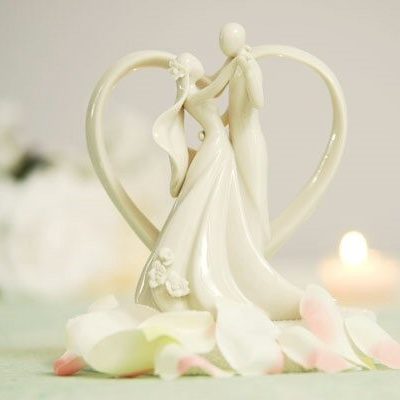The Friends (Quakers)

The Friends (Quakers) are also called the Society of Friends. They feel their faith cannot be placed into the traditional categories as Orthodoxy, Catholicism or Protestantism and hold that the teaching and belief in Jesus Christ are the very basis for their spiritual lives.
Their past history can be traced to Puritanism as well as in the Anabaptist movement. The Friend (Quakers) are considered to be among the Peace Churches. They do not have an established set of doctrines. They are a body of Christians who believe they receive Divine guidance from an inward light without the help of intermediaries or any outside rites. Their worship meetings take many forms; they can be silent without ritual or even without professional clergy, or they can be programmed and have professional clergy officiating.
The Friends (Quakers) originated in the 17th century in England during the English Civil War. They were founded by George Fox in 1652. George Fox preached that there was God in every man, and since God was in every man, it was not necessary for an educated minister or a structured formal church. George Fox and his converts called individuals to have an inward experience of God.
They spread to colonial America and formed a closed society in Rhode Island, New Jersey, North Carolina, and Pennsylvania. William Penn founded the Pennsylvania society for refuge of Quakers as a “holy experiment” in religious toleration in 1774.
The Friends (Quakers) spread their commitment of pacifism and denunciation of slavery throughout the American colonies. They were responsible for a variety of social reforms, even after the American Revolution, such as abolition, temperance, the women’s movement, education, prison reforms, the rights of the Indians as well are the freedmen’s right.
There were many conflicts over theology and the Friends (Quakers) experienced a series of schisms around 1827. There were three major groups that came out of the schism; the Conservative called “Quietist”, Orthodox called “Evangelical”, and Hicksites called “Liberal”. It wasn’t until the 20th century when the Friends (Quakers) tried to mend their differences.
The American Friends Service Committee was formed in 1917. It is an independent service organized to aid conscientious objectors and continues today to provide help to the needy all over the world. All throughout the history of the Friends (Quakers) they have founded different organizations that are keeping with their faith. They are members of the National Council of Churches.
There have been many influential well known members of the Friends (Quakers) including:
Herbert Hoover, the 31st President of the United States
Richard Nixon, the 37th President of the United States
Dolly Madison, the First lady to President James Madison
Thomas Paine, an author raised as a Quaker during the American Revolution
Nathanael Green, a General in the Revolutionary War and was second to George Washington the first President of the United States
Daniel Boone, a frontiersman and early political organizer of Kentucky
Susan B. Anthony, fought for the rights of women
Walt Whitman, an American poet
James Fennimore Cooper, a famous early American writer
John Greenleaf Wittier, an abolitionist and a poet that was considered the “Quaker Poet”
History
George Fox is the founder of the Friends (Quakers). He did not intend to create a new church or even a new sect. He could not find answers to his questions from any other church so he formed the Religious Society of Friends. George Fox wanted to convince the Church of England to return to the days of the Apostles. Fox declared the teachings of Peter, stating Jesus had been present in the flesh and that He had risen from the dead and was now come in the Spirit. He taught that Jesus acted in the hearts of His followers to purify them and empower them. Fox called for a fundamental, unrestricted, uncensored spirit filled Christianity that should never oppress any people on the account of class, race or even sex. George Fox believed the message of the early church was lost when the church became organized. He also believed they could have the same state as the Apostles of Jesus with the same power to heal, teach and prophesy like Jesus had taught His Apostles.
The teachings of George Fox challenged the belief of the Roman Catholic Churches as well as the Episcopal churches and their hierarchical structure for their Priests and Bishops. Fox declared everyone was able to have a personal relationship with the living Jesus without having to depend on the intercessions of either a Priest or Minister. Stating there is only one Jesus Christ and He can speak to every person and their condition, placed the responsibility for ministry to rest upon all people.
Persecution started because the Friends (Quakers) were so different to the churches of the time. The Friends (Quakers) were persecuted by the Puritan government led by Cromwell and by the government of Charles II of England in the 1650’s. They were imprisoned and beaten in England and the British colonies in America. The Massachusetts Bay colony of the Friends (Quakers) were banished on threat of death, and many were actually put to death for returning to preaching their belief.
William Penn founded the state of Pennsylvania and offered it to the Friends (Quakers) as a safe place to live and practice their faith.
Even though there was both schism and persecution, the Friends (Quakers) movement moved forward during the Puritan Commonwealth. The Friends (Quakers) passed the Toleration Act in 1689.
There were numerous conflicts over theology and the Friends (Quakers) experienced a series of schisms around 1827. The Hicksite which were liberal and the Orthodox which were Evangelical split in 1827 when Elias Hicks was expelled for having universalistic views. The following year a number of Friends (Quakers) chose to follow Elias Hicks and formed a parallel system of yearly meetings in America. They referred to themselves as Hicksite. Those Friends (Quakers) who did not follow Hicks, were called the Orthodox.
There was a split among the Orthodox over how much evangelism with other Christian groups should be used. Joseph John Gurney of England emphasized the Scriptural authority to convince the Friends (Quakers) to work hand in hand with other Christian denominations. John Wilbur of Rhode Island disagreed and emphasized the authority of the Holy Spirit, the Inner Light as being the One who does the work of leading the ministry. John Wilbur was expelled for having questionable practices in 1842.
Belief
The Friends (Quakers) believe the words of the Bible should not be taken as the final revelations of God. They believe the Books have been written by men who were acting under the power of the Holy Spirit. They believe the words of the Bible are used to lead the individual readers on their own special spiritual journey and they must listen to what the Holy Spirit speaks to them in their hearts. The Friends (Quakers) believe Christ, not the Bible, were the Word of God. They believe that Christ could never go against the Bible or their understanding of the Bible. They believe the Spirit leads them and the Bible should be authoritative among things that are controversial. They believe if personal leadings are contradictory to the teachings of the Bible, then the Bible should be the authoritative.
The Friends (Quakers) believe the teaching and preaching of the Good News as taught by George Fox. He taught everyone are children of God and have inherited powers from God. They believe God gave a measured part of his power or light in accordance to what each one uses. They believe Jesus had possessed this power or light, without measure, so that Jesus became the Light and the Light within is Jesus Christ.
The Friends (Quakers) believe if they wait silently upon God there will be times when God will speak to them in their heart. The silent Meeting of The Friends (Quakers) is considered the sacrament of communion with God. It is a time they lay themselves open to the leading of the Spirit. George Fox referred to revelations as “openings”, and these “openings” would occur in their minds and “a way will open” mystically to impart new information. The Friends (Quakers) believe openings can come to individuals who are alone or to those who are gathered in the silent Meeting for Worship.
The Friends (Quakers) believe men and women should have equal status because they are all children of God, and they believe God gave equality to all. Their testimony is that no one person should set themselves above other humans, especially by giving special honors and distinctions. They believe these distinctions are meaningless in the sight of God. The Friends (Quakers) practice dressing plain, speaking plain and living plain so as not to put themselves above another.
The Friends (Quakers) believe God is always present in the complete essence of a person and that makes life sacramental. They believe they must do more than accept the words or practices but also must experience God for themselves in everything they do. They believe it is important to unite the inward and the outward journeys avoiding selfishness and burnout. It is this philosophy of the inward and outward method that has stimulated the Friends (Quakers) into pioneering social actions like improving conditions in prisons, schools and mental institutions. They believe holiness exists in all and that life is sacred.
The Friends (Quakers) do baptize as a rite of membership. Any meal with others in fellowship is considered a form of communion and therefore not part of a rite in their worship.
The Friends (Quakers) believe it is important for Friends (Quakers) to oppose wars and conflicts. They believe God is within everyone and by taking up arms against others would deny the inner Spirit of another. They recognize the Light as a force which can create unity within those who respond to another. They believe the Light of Christ has been given to all people everywhere, thus war would destroy the Light of Christ.
The Friends (Quakers) believe all people are equal before God no matter their race, religion, sex, or even their station in life. They believe being Children of Light requires them must avoid violence. Their philosophy is mystical as they wait upon God and prophetic as they speak truth to power. They believe the revelations of God are still continuing today, and they can find God themselves and establish a living relationship with God in the world free from the burden and guilt of sin. They believe it is important to keep searching for a closer relationship with God and His Way.
The Friends (Quakers) believe the teachings of George Fox who taught that Christ came to teach His people Himself. They believe God is in everyone. It is because of this belief of the personal experience of God that Quakerism is often given the tag as a mystical religion. Their traditional meeting for worship, especially their un-programmed worship, is an expression of group mysticism. The whole group listens for the Spirit and the Spirit moves people to speak.
The Friends (Quakers) believe in a common set of beliefs known as testimonies. These testimonies are based on things verified in the Bible regarding the life and the teachings of Jesus.
The Testimony of Integrity
The Friends (Quakers) believe an important part of the message of Jesus was the treatment of fellow human beings. They believe it is important to deal with honesty and integrity, not telling lies, always being truthful, not misleading others and not swearing to oaths even in courtrooms.
Testimony of Peace
The Friends (Quakers) believe The Peace Testimony is the most unchanging of the testimonies. They believe violence is always wrong and therefore they are against violence and wars. It is because of their peace testimony that in 1947 the Friends (Quakers) were awarded the Nobel Peace Prize.
The Testimony of Equality
The Friends (Quakers) believe all people are created equal in the sight of God. Therefore all people should be treated equally. They believe women are equal to men and therefore women also can be ministers. They allowed women to become leaders in the campaign for the rights of women, and the anti-slavery movement, they were active in the humane treatment for the mentally ill and for all prisoners.
Testimony of Simplicity
The Friends (Quakers) believe simplicity is plainness. They are limited to the amount of material possessions they have and it is generally based on their needs to live their lives instead of their pursuit of luxuries. They believe they should not use more than their fair share of the resources of the Earth.
Cite Article Source
MLA Style Citation:
Holstein, Joanne “The Friends (Quakers):.” Becker Bible Studies Library Jan 2006.<https://guidedbiblestudies.com/?p=2703,>.
APA Style Citation:
Holstein, Joanne (2006, January) “The Friends (Quakers):.” Becker Bible Studies Library. Retrieved from https://guidedbiblestudies.com/?p=2703,.
Chicago Style Citation:
Holstein, Joanne (2006) “The Friends (Quakers):.” Becker Bible Studies Library (January), https://guidedbiblestudies.com/?p=2703, (accessed).


